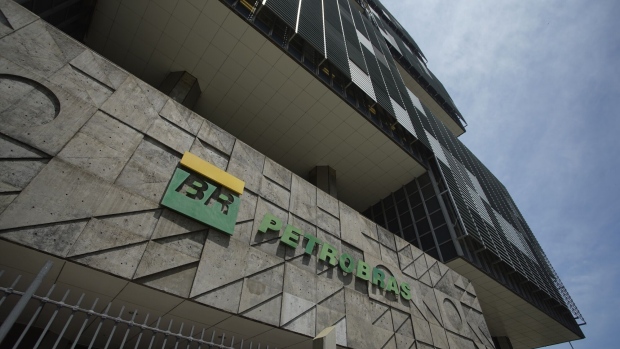Apr 17, 2024
Petrobras Chair Returns to Board Divided by Rivalries
, Bloomberg News

(Bloomberg) -- A Brazilian judge has reinstated Petroleo Brasileiro SA’s chairman as acrimony intensifies between government-appointed board members and those representing minority shareholders of Latin America’s largest oil producer.
The rivalry among directors has escalated amid a power struggle between Chief Executive Officer Jean Paul Prates and members of President Luiz Inacio Lula da Silva’s cabinet. While the political attacks on the CEO have for now subsided, the unrest on the board continues, with members calling for investigations into one another for allegedly intimidating social media posts and conflicts of interest.
Read More: Petrobras CEO to Remain in Charge for Now as Dispute Cools
“It’s counterproductive,” said Jeronimo Antunes, a former Petrobras director who is running for a seat on a board election scheduled to the company’s annual shareholders meeting, on April 25th. “The board should have reasonable debates, without radicalism, that are supported by a technical discussion, without creating situations of gratuitous belligerence.”
For investors, the main concern is that the government is intervening more aggressively in corporate decisions such as which projects to invest in and and how much cash it will return to shareholders as dividends. A recent rout in the local currency has left domestic fuel prices at a sharp discount to international levels, and the political turmoil leaves Prates in a vulnerable position at a moment he will probably need to make an unpopular fuel price increase.
Recent drama between the two camps on the board has spilled into the public in a departure from the historical rivalry between representatives of the government and minority shareholders, which usually plays out behind closed doors.
On Tuesday chairman Pietro Adamo Mendes was reappointed after a federal judge overturned a prior decision that had suspended him for alleged conflicts of interest. Mendes is a secretary of oil and gas at the Mines and Energy Ministry, which prompted complaints that the role could influence his decisions.
Petrobras, as the Rio de Janeiro-based producer is known, has previously said that Mendes’s appointment complied with relevant laws. Petrobras didn’t immediately respond to a request for comment.
Board Drama
The tension heated up after board member Marcelo Gasparino said in an April 7 interview with local newspaper O Globo that government-appointed members make decisions based on political considerations instead of the company’s best interest. Mendes fought back by requesting an internal investigation into what he called unfounded accusations.
The two also argued on a WhatsApp group, according to reports in the local media confirmed by two people with knowledge of the posts. After that, Gasparino requested that the Brazil’s Securities and Exchange Commission, known as the CVM, carry out an investigation into recent developments on the board, according to a document seen by Bloomberg.
The 53-year-old lawyer wants the regulator to review allegedly “intimidating messages” in the chat group, especially in the run up to a vote that shot down the payment of extraordinary dividends. The CVM has started a preliminary investigation and has requested a statement from the chairman. At the same time, Gasparino is the target of a complaint filed to the CVM by oil workers, who said he shouldn’t be a member of utility Eletrobras while he serves on Petrobras’s board.
The government has reappointed Mendes as its choice for chairman at an April 25th board election, along with seven candidates. Gasparino and Jose Joao Abdalla will compete for some of those seats. The board also includes a representative of employees, and two other seats that minority shareholders will elect in a separate process.
There has been speculation that Aloizio Mercadante, a long-time ally of Lula and the head of Brazil’s development bank, could be appointed as the next chairman. He had previously been cited as a potential replacement for Prates. The government’s list of candidates also adds a secretary at the Finance Ministry, Rafael Dubeux, who is viewed as someone with political backing in Brasilia who could help to reduce tensions.
In addition to the election, next week’s meeting could bring up the topic of extraordinary dividends again if a proposal is brought forward during the meeting. There have been indications that the government now supports the partial payment of 44 billion reais of potential extraordinary dividends that were put into a capital reserve.
©2024 Bloomberg L.P.







